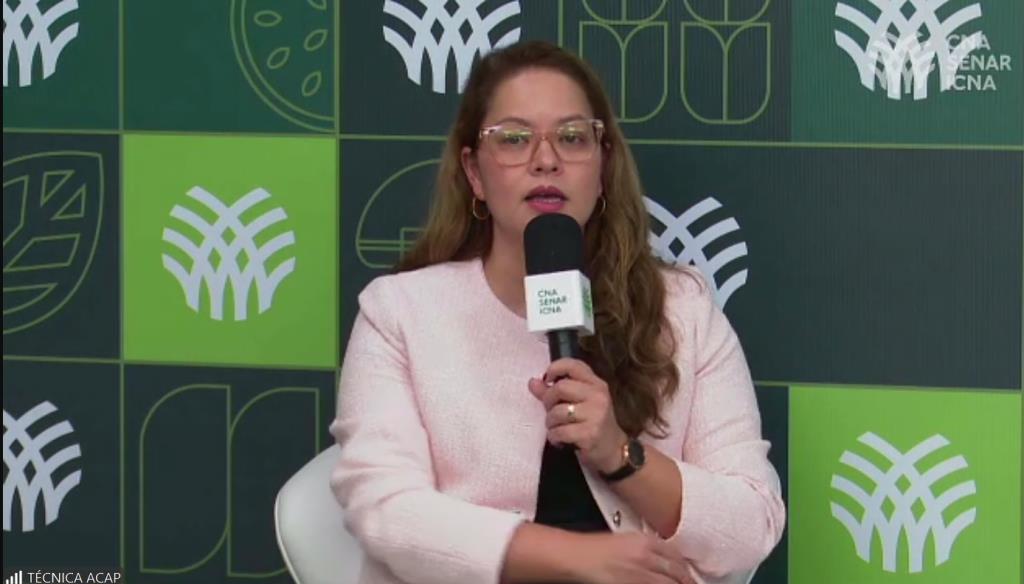(MENAFN- Brazil-Arab News Agency (ANBA))
São Paulo – The United Arab Emirates and Egypt have joined the top ten destinations of Brazilian agribusiness exports this year, according to data presented in a press conference by the Brazilian National Confederation of Agriculture (CNA ) on Wednesday (11). The institution reported the UAE is expected to end the year as the 6th destination of Brazilian agricultural exports, up from 14th place in 2023. Egypt moved from 20th place last year to 8th this year.
China, European Union, and the United States will remain, in that order, the top three destinations of Brazilian agribusiness exports. Indonesia (4th), Vietnam (5th), Japan (7th), Turkey (9th), and Thailand (10th) round out the list of the top destinations.
“Looking at the aggregate of agribusiness exports over the past 20 years, the Middle East is the second-fastest growing region, only behind Asia. In addition to Egypt and the UAE in 2024, Saudi Arabia has stood out in recent years, and Iran was the 4th leading destination of [Brazil's] agribusiness exports in 2022,” CNA International Relations Director Sueme Mori noted to ANBA after the event. Among the factors contributing to this increase in purchases, Mori pointed out the growing population and purchasing power, food imports for food security, and the presence of Brazilian companies in the region.
“Another concrete example that could generate even more volume and business opportunities is the signing of a trade agreement between Mercosur and the UAE, currently in the phase of technical discussions and market access,” said the CNA executive.

Sueme Mori: Despite the decline in sales to China, the sector's exports are expected to maintain the pace of 2023
“We expected a reduction in exports in 2024, but what we're seeing is that we'll maintain the level. The CNA's forecast is that it will remain around R$ 166 billion [USD 27 billion] by the end of the year. We saw a significant drop in China, but this was compensated by other markets,” said Mori. The largest declines in product exports in terms of value were in soybeans and corn, while sugar, beef, coffee, and pulp saw the highest growth in exports.
Mori highlighted the main challenges for exports in 2025 as a weakening of multilateralism due to Donald Trump's presidency in the US, a drop in demand from China, and protectionist positions from Europe, as the free trade agreement recently signed between the EU and Mercosur is believed to face obstacles before it is ratified.
Climate challenges were also a topic in the press conference. CNA Technical Director Bruno Lucchi said some European countries question Brazil's commitment to sustainability.
“We have participated in many COPs, advocating for sustainable agribusiness, and today, Brazil's agriculture is a model of production,” he said, affirming that Brazil is a model of energy transition and that part of its energy sources come from agribusiness products.“And at every COP, we justify ourselves regarding deforestation, which is illegal and which we oppose,” Lucchi said.
O
utlook for Brazilian agribusiness in 2025
Even so, the climate was a factor influencing the sector's performance in 2024. The president of CNA, João Martins, said 2024 was a challenging year due to, among other reasons, climatic factors, yet the gross domestic product of Brazilian agribusiness is expected to grow by up to 2% compared to 2023.
“A difficult year, in which we faced climatic problems in agribusiness overall. There was a setback in our expectations to reach around 340 million tonnes [of harvest] this year or by next year. We saw a drop in production due to droughts in several grain-producing regions, an unprecedented drought in pastures that affected major cattle-producing states,” he said, also mentioning the“catastrophe” of the floods in Rio Grande do Sul in May.
Brazil's agribusiness GDP is expected to grow by up to 5% in 2025 compared to this year. According to Lucchi, the La Niña phenomenon is forecast to losing strength at the beginning of 2025, with El Niño expected to arrive by the end of next year. High and rising interest rates are reducing the availability of rural credit, thus impacting investments in agriculture. The exchange rate is another factor that will influence the sector next year.
A high dollar benefits exports but increases production costs, which are priced in dollars,” Lucchi said, citing the costs of fertilizers and the rise in maritime freight rates. This year alone, Brazil's fertilizer imports grew by 10.5%. Some of the main fertilizer suppliers to Brazil are Arab countries, such as Morocco, the UAE, Egypt, Tunisia, Qatar, and Jordan.
Read more:
Brazil agribusiness: Where we are headed
Translated by Guilherme Miranda
Claudio Neves/Ports of ParanáScreenshot
The post Brazil's ag top 10 destinations feature UAE, Egypt appeared first on ANBA News Agency .
MENAFN11122024000213011057ID1108984006
Legal Disclaimer:
MENAFN provides the information “as is” without warranty of any kind. We do not accept any responsibility or liability for the accuracy, content, images, videos, licenses, completeness, legality, or reliability of the information contained in this article. If you have any complaints or copyright issues related to this article, kindly contact the provider above.